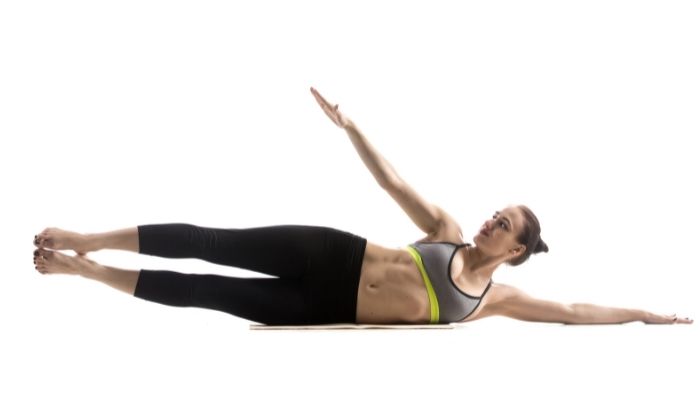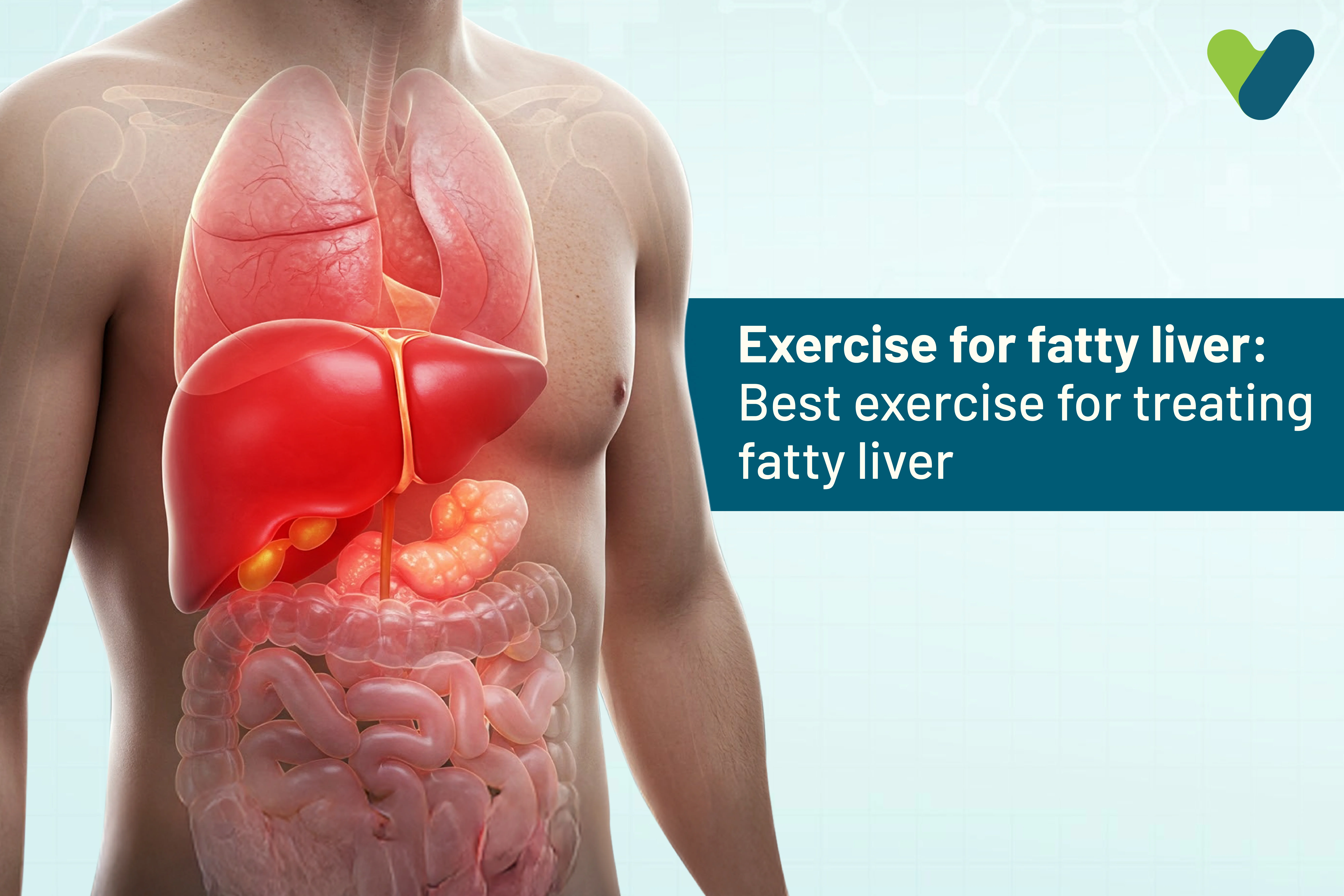Your liver is an important organ of your body and it is your responsibility to keep it healthy for overall good health. Regular exercise for the liver and a healthy diet are the utmost ways by which you can maintain your liver and also, improve your immune system. Exercise prevents various liver diseases and motivates you to lead a healthy life. By burning excess fat, exercise also prevents obesity. Exercise will also uplift the level of “good” high-density lipoprotein cholesterol that minimizes your triglyceride and “bad” low-density lipoprotein cholesterol. Exercise controls other fatty liver diseases like type 2 diabetes and liver cirrhosis.
Obesity is a growing health problem today as it can lead to nonalcoholic fatty liver disease (NAFLD). NAFLD is the most common chronic liver disease that people are suffering from today. NAFLD and especially its inflammatory form nonalcoholic steatohepatitis (NASH) is the fastest growing reason of end stage liver disease. Physical inactivity will make fatty liver disease worse regardless of your weight. But several medical studies have proved that physical activity through exercise can improve your fatty liver disease. A plethora of evidence has also claimed that physical exercises are beneficial for both NAFLD and NASH. Many experts have also believed that aerobic and resistance exercises reduce the hepatic fat content from your liver.
What Type of Exercise is Beneficial for your Liver?
To improve your liver, you can move your body in any shape or form. But if you really want to rejuvenate the health of your liver, there are some specific exercises for fatty liver. Several medical studies have claimed that a combination of aerobic exercise and resistance training exercises is the best exercise for fatty liver. If you perform these two several times a week you will certainly get the desired results. These fatty liver exercises lessen the amount of stored fat in your liver, irrespective of your body weight.A medical study was performed for 4 weeks on obese people. The study revealed that obese people who trained for 30-60 minutes, five days per week, saw a drastic improvement of 10% loss in liver fat though their weight remained unchanged. High intensity interval training (HIIT) exercises is the best fatty liver disease exercise. You need to spend 30 minutes in the gym so you can forget trudging away on a treadmill for an hour. It’s very effective in improving your liver condition. Though aerobic exercise for fatty liver is effective in reducing the fat from your liver, resistance training is preferred by many to improve the level of liver fat. A study was performed for 3 months on 82 subjects (aged 20-65) who are suffering from liver diseases. It was found that people who performed resistance training (40 minutes, three times a week) strikingly improved their liver health. The study also revealed that gym training declined the level of bad cholesterol that benefited the liver.
Also Read: Diet, Exercise, and Weight Loss for Liver Disease
Aerobic Exercise For Fatty Liver
Aerobics is very helpful in managing and reversing fatty liver disease, especially non-alcoholic fatty liver disease (NAFLD).It reduces liver fat, improves liver function and stops more damage. It also improves insulin sensitivity, controls blood sugar and reduces risk of type 2 diabetes. Aerobic exercises make the heart strong and improve blood circulation, overall health and reduces heart disease risk.
For best results, perform at least 135 minutes of moderate to vigorous exercise a week.
Some of the best examples of aerobic exercise for fatty liver are :
- Dancing
- Tennis
- Cycling
- Hiking
- Swimming
- Brisk Walking
- Jogging or Running
Resistance Training Exercises To Reduce Fatty Liver
Resistance training or strength training is helpful in managing fatty liver disease for several reasons. They reduce liver fat, improve liver function and prevent liver damage. Resistance training builds muscle, increases metabolism and helps in weight loss which is important as obesity is a risk factor for liver disease. Not only that, by practicing resistance training exercise regularly, you can improve insulin sensitivity, control blood sugar, reduce inflammation and lower risk of type 2 diabetes. Do you want to improve strength and endurance, make daily activities easier and improve overall quality of life? Then, resistance training is the exercise you must practice.Some good resistance exercises are bodyweight exercises like push-ups and squats, free weight exercises like dumbbell curls, resistance bands and gym machines.
Do these exercises 2-3 times a week and target different muscle groups for a balanced workout.
Best examples of resistance training exercise for fatty liver:
- Use Free Weights like Dumbbells, Kettlebells, and Barbells
- Use Weighted Machines
- Use Medicine Balls
Fatty Liver Exercise - Frequency
The liver disease will make you exhausted and fatigued. While setting your targets and goals, always remember this factor. Don’t stretch yourself too hard and never introduce new exercises frequently. Many doctors and health experts recommend starting three times a week and aiming for 30-45 minutes. Don’t force yourself beyond this limit initially. Consult your doctor or physician before trying fatty liver exercise at home if you have liver disease. Doing too much at a time will make you more susceptible to an injury.
You won’t get any physical results after one week of fatty liver exercise. You need to implement this exercise regime as a part of your weekly routine. You will see mental and physical improvements gradually. Initially you will find it difficult to do exercises but with time it will get easier. You can’t get healthy overnight; it’s a long journey and your lifestyle changes should be permanent.
Exercise To Reduce Fatty Liver - How to Get Motivated
To improve your liver and overall health you should stay motivated all the time. Getting motivated is the toughest part especially if you don’t like exercising. Try the below-mentioned tips to stay motivated. Monitor Your Mood: Take a notepad and write about your feelings after the completion of your fatty liver exercise at home regime. Similarly, write something once you skip your exercise routine. Now, take a look at which one will make you feel better. Wear Your Workout Clothes: This will make your workout intriguing. Nobody wants to wear their formal clothes while performing exercises. Join a Group: Join a group and perform your exercise to reduce fatty liver. In a group, you will find plenty of other people who are working and staying motivated. They will also inspire you to stay motivated. Always drink enough water while exercising. Hydration is an important factor of your liver health. You will sweat during the exercise and if you don’t drink enough fluids you can get dehydrated. This can cause many problems to the body.Also Read : Foods to Eat & Avoid with Fatty Liver Diet
The Bottom Line
It’s hard to start a new exercise routine in your daily life. But to keep your liver and body healthy you should do some physical activities that will burn the fat stored in your liver. Start slowly and follow a continuous routine to observe the desired results.Consult a Gastroenterologist today!


